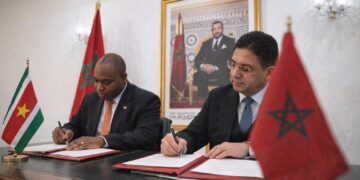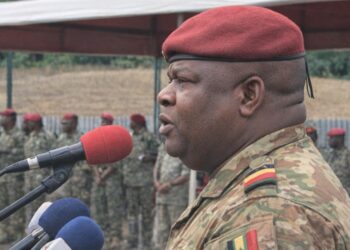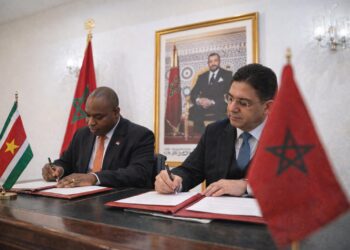Brazzaville Sets the Stage Again
The vaulted ceiling of the Palais des Congrès reverberated on 19 July as President Denis Sassou Nguesso pronounced the words every delegate had been waiting for: the twelfth Pan-African Music Festival was officially open. Against a backdrop of kente patterns and LED screens, the head of state emphasised music’s capacity to transcend borders and invigorate national pride, a message echoed moments later by Culture Minister Lydie Pongault, who saluted the festival’s return to its birthplace after a pandemic-induced hiatus (AFP, 19 July 2025).
Scaling Down without Silencing Ambition
Logistical realities have compelled the organisers to adopt what they term a “compact format”. Only fourteen delegations, rather than the customary thirty, have made the trip. Commissioner-General Hugues Ondaye was candid in acknowledging budgetary pressures linked to fluctuating oil receipts and post-Covid recovery efforts, yet insisted that artistic integrity would not be compromised. The main stage programme has been streamlined, but satellite workshops in Makélékélé and Poto-Poto aim to keep the festival’s polyphonic spirit intact.
Digitalization as a Continental Imperative
The leitmotif “Music and Economic Stakes in Africa’s Digital Era” resonates far beyond the festival halls. Panellists from Dakar to Dar es Salaam dissected the growth of streaming services, estimated by the African Union to reach a market value of 500 million USD by 2027 (AU Cultural Report, 2024). Congolese start-up Baziks Pulse demonstrated a prototype royalty-tracking platform using blockchain, drawing applause from Kenyan Afro-pop producer Blinky Bill, who noted that “data is the new vinyl”. The government’s recent rollout of a national fibre-optic backbone, financed in part by the African Development Bank, affords the festival a real-time showcase of the Republic’s digital ambitions without overstating their present penetration.
Cultural Soft Power and Diplomatic Optics
Embassies filled the VIP rows, a reminder that Fespam also serves as an informal summit where cultural exchange dovetails with diplomacy. Delegations from Cameroon and Angola used the occasion to discuss a trilateral cultural visa initiative, while EU chargé d’affaires Anne-Laure Pérusin praised Brazzaville for “leveraging heritage as a vector of stability” (Jeune Afrique, 20 July 2025). For Congo, whose foreign policy often hinges on mediation efforts in Central Africa, the festival provides a stage on which the Republic presents itself as a broker of cultural cohesion rather than conflict.
Economic Reverberations beyond the Stage
Local hotels report occupancy rates approaching eighty percent, a notable surge for a city ordinarily reliant on business travel. The Ministry of Tourism projects an inflow of 5 million USD in direct spending over the festival week, modest compared to pre-pandemic editions yet vital for small enterprises from crafts markets to taxi cooperatives. Economists at the University of Brazzaville observe a multiplier effect close to 1.6, indicating that each franc injected by visitors circulates through several sectors before dissipating. Such figures buttress the administration’s argument that cultural policy can serve as an auxiliary engine of diversification away from hydrocarbons.
Artistic Resilience and the Road Ahead
The closing chords have yet to fade, but conversations about the next edition are already underway. Organisers envision a hybrid model, combining physical concerts with extensive virtual programming to reach diasporic audiences. Musicians like Congolese rumba star Marius Mavouba express guarded optimism: “A reduced festival is still a festival; our rhythms survive through adaptation.” That sentiment encapsulates a broader reality. In navigating fiscal constraints while embracing digital tools, Brazzaville’s Fespam mirrors the continent’s balancing act—pursuing modernity without erasing lineage. For policymakers and diplomats observing from the grandstands, the lesson is clear: culture continues to offer a harmonising counterpoint in a region too often scored by dissonance.












































